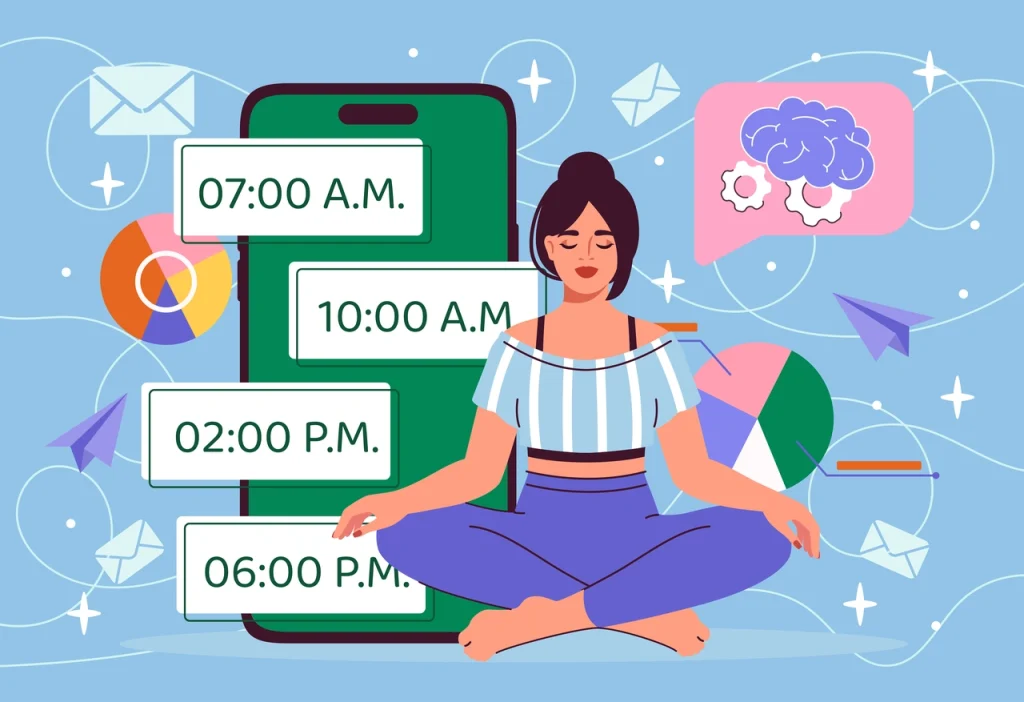Introduction
It’s funny how everyone these days talks about “balance.” Work-life balance, emotional balance, digital balance, even food balance. Still, you just have to look around. Every café has the same scene, people scrolling, half-smiling, pretending to unwind but clearly somewhere else in their minds.
Kind of says everything about how we live now, doesn’t it? Always connected, barely rested.
And that’s where the AI Health Companion app scene really started to explode. Especially this year, 2025. It’s no longer about tracking steps or counting calories. It’s about something deeper. How we actually feel, every single day. People want an app that listens when they can’t explain things. One that reminds them to breathe, not just drink water.
A little bit of science, a little bit of soul.
What Is an AI Health Companion App?
So, what is it really?
Imagine having someone, or rather something, that understands your moods before you even type a word. An AI Health Companion app does just that. It observes, listens, learns. It figures out when your tone sounds tired or when your energy seems off. It doesn’t judge. It nudges.
Some days, it might suggest a short walk. Other times a breathing exercise, or even a gentle quote that oddly feels right for that moment. It’s not magic, though it feels like it. It’s data meeting empathy.
We’ve seen the shift ourselves at TinyBit. Users don’t just want information. They want companionship, a digital hand that helps them stay afloat through the week.
Key Features Like Daily Mood Tracking & Stress Management
There’s something powerful about simply logging your mood. You open your phone, select an emoji, type a few words like “tired,” “hopeful,” “meh.” And somehow, that tiny act makes your day feel seen. That’s why the daily mood tracker app culture has grown so fast. It’s not about analytics, it’s about acknowledgement.
At TinyBit, we built our system around that. Each mood check isn’t just stored. It’s analyzed by our AI to shape the next few hours of your experience. When your energy feels off, it might quietly suggest a small break. Maybe stretch, step outside, breathe slower for a bit. It’s surprising how often that tiny pause changes the whole day.
Why Smart Wellness Apps Are Growing in 2025
You might’ve noticed, mental wellness isn’t a “trend” anymore. It’s survival.
Especially in the U.S., where 4 out of 10 adults say stress is part of their daily routine. Commuting, remote work, health scares. It adds up. And traditional therapy, while essential, isn’t always accessible or affordable.
That’s where the smart wellness app for stress management movement found its space. These apps act as a bridge. Not a replacement for therapists, but a daily companion when the therapist isn’t around.
People love the control it gives them. Check your mood, get insights, track patterns, and see your emotional map evolve. You begin to understand yourself in ways that a simple journal can’t show.
How TinyBit Helps in Stress & Mood Management
Now, speaking from our side, TinyBit AI was born from that very need for empathy. We didn’t just want another tracker. We wanted an app that feels like a friend.
Our AI Companion doesn’t just talk. It remembers. It looks at your patterns, your reports, even your environment. It’s designed to manage the emotional and physical together, because they’re never really separate, are they?
You might log that you’re feeling tense today. The AI quietly notices that your sleep’s been shorter this week, and maybe you skipped meals. It connects those dots, offers a little advice, maybe a gentle nudge to hydrate, or rest your eyes.
For users with guardians, parents, caregivers, even medical mentors, the app shares just enough data to keep everyone aligned. It’s not invasive. It’s reassuring.
We often hear from users who say TinyBit feels like “a steady voice in the background.” And honestly, that’s exactly what we hoped it would be.
Choosing the Best AI Health Companion App
There’s no shortage out there. Calm, Wysa, Woebot, MindDoc. Each has its style. Some are chat-based, others are routine-driven. The trick, though, is finding one that feels personal.
When you’re comparing, look for things like emotional intelligence, not just algorithms. Does it actually listen? Does it respond with warmth? Does it connect to your real-life context, like weather, schedule, even how you’ve been sleeping?
For us at TinyBit, that’s where the difference lies. Our AI doesn’t stop at tracking. It learns, forecasts, and adjusts. Because stress is never static. Neither should your support system be.
In the End
You know, it’s strange. People used to think tech would make us more robotic. But here we are, using technology to feel more human.
The rise of the AI Health Companion app world shows exactly that. Behind every data point, there’s a person trying to sleep better, live calmer, love themselves a bit more. And that’s beautiful.
As we continue to refine TinyBit, your smart wellness app for stress management and daily mood tracker app, our goal isn’t perfection. It’s presence.Just to show up for those tiny moments we usually skip. The ones that whisper, slow down a little, breathe, you’re still here, even when the day keeps racing ahead.
That’s where real balance starts. Not in grand resolutions, but in quiet, consistent care.




